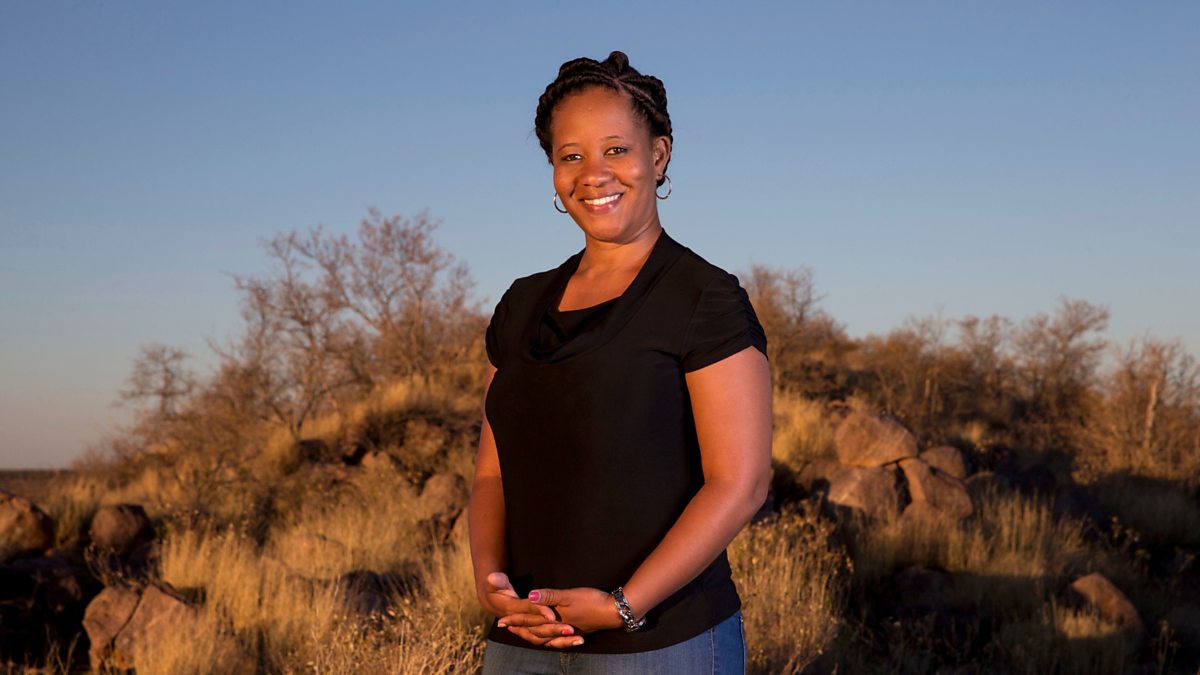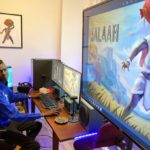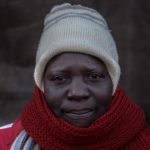This is Livey Van Wyk’s own story about living with HIV, being the youngest mayor ever elected in Namibia’s history despite being outcasted by family and her community. One person though, her grandmother welcomed her with open arms and took care of Livey.
She tells her story.
‘It was all about death’
When the news was given to me, the doctor invited a pastor because it was considered something serious. The doctor told me, ‘you have AIDS’ and after that she gave it over to a pastor whom she invited. Then the pastor told me that I have to prepare myself because I was going to die. That’s what he said. On that day of my diagnosis, it was all about death.
I remember thinking, ‘this is the end of the tunnel’.
With my family, because we didn’t have enough and we didn’t have the right education with regards to HIV and AIDS, the only information we had, was that I was going to die and I was going to die a painful death. I was going to die with this child I was carrying.
People were scared. I was scared of myself, and of the pictures we had about HIV. I kept thinking, ‘I’m going to have these pimples, I’m going to have this diarrhea’ and people thought you would get HIV if you are exposed to those symptoms. So my family, especially my mum was quite sad being a mother and when we went home, after she informed the others, things changed.
The bathroom was cleaned with detergent, I had to use my own cup, my own plate. That is what we knew about HIV/AIDS back then.
I felt very very isolated because things just changed. I felt completely different, I felt inhuman. Being brought up in a Christian environment, it was like a punishment. You were punished because you had sex.
When they treated me they didn’t treat me good because, to them, I had done something very wrong which was sex and I contracted this very bad and this dirty disease. So that’s why they couldn’t treat me well or people did not treat me with any sympathy.
My mum went to school and informed the staff because she had to tell my school why I wasn’t coming back to school. The principal told me ‘you cannot come back because you know you will infect the other kids and the teachers at school so you need to go back home and die there.
To me, death was becoming a real prospect.
I didn’t get any support at home where I stayed with my mum, my siblings and the community. Everybody was gossiping and I was the talk of town. Perhaps, the talk of the city because our country is so small. The stigma became so hard that I had to flee to a town called Witvlei and that’s where I decided that that is where I will go to die.
I already prepared myself that I am going to die because everybody told me, the doctor told me, the pastor told me, my family had given up, the community had given up but death was not coming.
In the corridors, my mum would be on the phone, talking to other relatives where they were planning my funeral stating options on what they can do for the funeral, and all that. It became quite scary and very confusing at that point because I was also looking at myself and I showed no symptoms of AIDS or HIV back then.
I left the torture and went to stay with my grandmother in the village. She is the one who took me in and did not discriminate from the first day.
Grandmother was different: she took me in
I think it’s just the natural love she has for people because she loves people despite what condition they’re in.
She was my pillar of strength.
She was an elder at church, and when they found out that I was around, they told her she can’t do the things she used to do because she is now close to this person who is HIV positive.
But she sacrificed that for me.
I was very afraid because when I walked around children my age would throw stones at me and people would say terrible things, “what is she doing here? Why did she decide to come and die here?”
It happened everyday. Until I couldn’t take it anymore. Tearfully she says, “I decided to go hang myself.”
I decided to hang myself because I wasn’t dying because of HIV and AIDS, I was dying because people did not want me to be a part of this community or denied me from being who I needed to be.
I just wanted to live my life.
I just wanted to live because I had my dreams like any other person has dreams and I wanted to see my son. Even if he was going to come out dead, because that’s what they told me but I had this hope that I’m going to see him despite how he is going to come out.
I wanted to see him.
When he was born they told me that he was on a pill to prevent a mother to child transmission treatment which I’m very very thankful for. My child became HIV negative and that’s where my hope began.
‘My boy brought me hope’
It felt wonderful to hold him for the first time. It took away all my pain and just showed me that, if I continue to have faith, hope and courage, things will be better and eventually things will become easier.
I decided to talk about my status from then on because I did not want another person to go through what I went through. What gave me that courage to talk about it is there was really a greener light, there was really greater hope in the sense that you could give birth to a HIV negative child and you know there’s treatment.

Sometimes you would just find some people dying; while they are already in isolation, they give up and they just die. It’s a sad reality for many in Namibia.
My community from Witvlei, the day I went public with my status, they started embracing me and taking me in. Later they became my strength because I could see that whatever I was doing was bringing healing to me, healing to my community and that love just grew among us.
Things just changed. My community embraced me.
Moving forward
In the African context, it’s very difficult for someone to come to you and say I’m sorry for doing this. People will show it in their daily activities and their actions. It’s the same community who have voted me in. The same person who they wanted to kill, a few years ago is the same person that they wanted to govern them as mayor.
I think that was the point where they were really trying to apologize for what they had done.
Then voting me in as the mayor, I remember how they were.
Fighting against the opposition and campaigning to say that now we want Livey to be the mayor of Witvlei. I was also not planning to stand as the mayor. I just wanted to be an ordinary council member but they made the noise and said, ‘we want her to be our mayor’.
Being a mayor was challenging. It was nice because I would consult with my community and ask them what they need and what they wanted Witvlei to be in the next five years because I wasn’t elected to be the mayor to make my own decisions, I was there to represent the people from where I come from.
It was difficult but worthwhile.
My life has been like a river that flows. You know when it flows, it flows with rocks. These rocks flow through waves and later they form into round beautiful stones.
It is still like that, there are a lot of challenges I’m facing. I know that I’m slowly being moulded and I know at the end of this river, this stone that I am would be moulded into a beautiful beautiful stone














